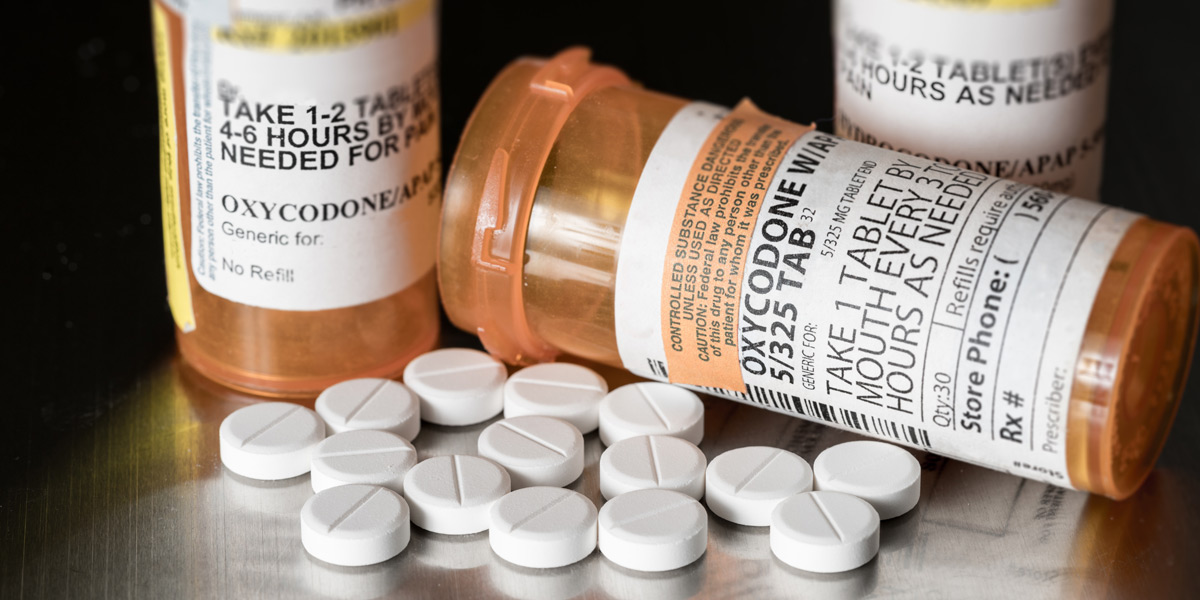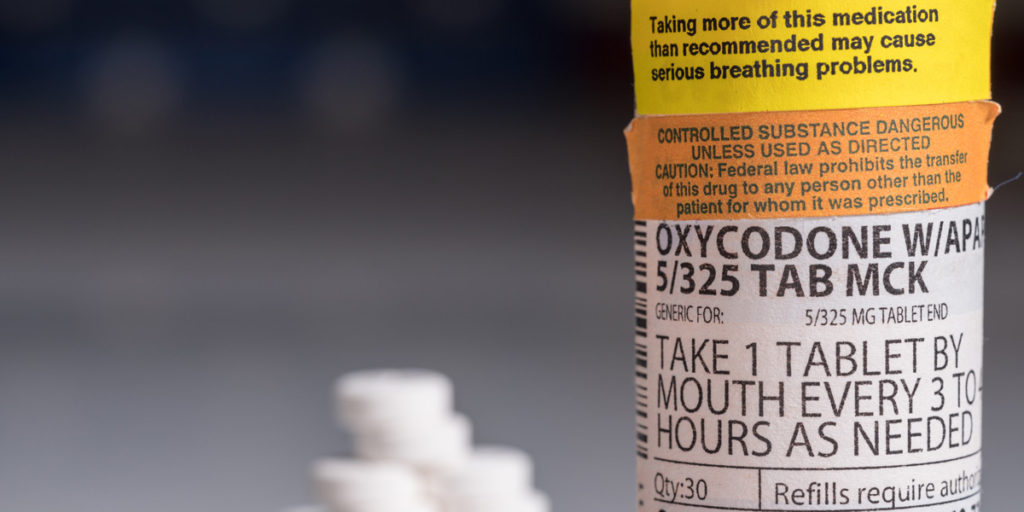Percocet Uses, Dosages, and Effects

What Is Percocet?
Percocet is a name-brand form of Oxycodone, or more precisely, an opioid-based prescription drug. The distinction is that Percocet also contains acetaminophen, a milder pain treatment often found in over-the-counter medications. This makes Percocet more effective than Oxycodone by itself.
Percocet is FDA-approved to treat moderate to severe pain patients, especially chronic and cancer-related pain. Because Percocet contains acetaminophen, it can also help alleviate fever-related issues such as fatigue, chills, and muscle aches.
Endo Pharmaceuticals is the manufacturer of Percocet, also produced under other name brands such as:
- Endocet
- Magnacet
- Narvox
- Perloxx
- Pimalev
- Roxicet
- Roxilox
- Tylox
- Xartemix XR
- Xolox
For more information, the FDA can be reached at 1-800-FDA-1088.
What Does Percocet Look Like?
If you are unsure which tablet’s dosage is, the manufacturer has given each tablet its own unique look.
- Percocet 2.5 mg or 325 mg — Oval shape, pink, one side engraved with “Percocet,” the other with “2.5”
- Percocet 5 mg or 325 mg — Round shape, blue, one side engraved with “Percocet,” the other with “5”
- Percocet 7.5 mg or 325 mg — Oval shape, peach, one side engraved with “Percocet,” the other with “7.5/325”
- Percocet 10mg or 325mg — Capsule-shape, yellow, one side engraved with “Percocet,” the other with “10/325”
Percocet Dosages and Forms
Percocet can come in various forms, such as liquid, concentrated liquid, extended relief capsules, or extended relief tablets. Tablets are the most commonly prescribed type of Percocet.
The frequency and dosage can vary based on the delivery method, the dosage, and the patient’s other medications and medical history. It is essential to disclose all of your medications to doctors in order to avoid interactions between drugs.
The instructions for adults are one tablet every six hours as needed for the pain. Since Percocet does not treat medical conditions and is used only for comfort, it is not required to take every six hours. If the patient is not in pain or the previous dose is still providing relief, it is okay to wait to take more.
What Is the Dosage for Percocet?
Percocet is typically prescribed in the following dosages:
- Percocet 2.5 mg or 325 mg, not to exceed 12 tablets in 24 hours
- Percocet 5 mg or 325 mg, not to exceed 12 tablets in 24 hours
- Percocet 7.5 mg or 325 mg, not to exceed eight tablets in 24 hours
- Percocet 10 mg or 325 mg, not to exceed six tablets in 24 hours

Percocet Side Effects
The most basic definition of a side effect is any reaction other than the drug’s intended and prescribed use. Side effects of medications are usually discovered during well-documented trial periods. Doctors will typically tell patients what they can expect to experience. Side effects are generally unpleasant and may vary based on the individual. Side effects will resolve on their own after a couple of days of use once the body adjusts or once the course of treatment ends. If the side effects outweigh the benefit of the medication or become unbearable, you should always call your doctor.
Side effects of Percocet include, but are not limited to:
- Nausea
- Vomiting
- Upset stomach
- Constipation
- Dry mouth
- Sweating
- Headache
- Dizziness
- Drowsiness
- Headache
- Itching
- Blurred vision
- Slowed reactions
Adverse Effects
Some people use the terms “side effects” and “adverse effects” interchangeably, but they are not the same thing. As defined above, side effects are expected and usually resolve on their own.
There are two types of adverse effects: predictable but not guaranteed, ranging from mild to severe, depending on the dosage. The second kind of adverse reaction is unpredictable and usually presents in patients with an allergy to the medication or other susceptibility factors.
Unfortunately, there is no way to know if a patient is intolerant or allergic to medication if they’ve never taken it, or any version of it, previously.
A doctor should be contacted immediately if any of the following adverse effects from Percocet use occur:
- Confusion
- Disorientation
- Fever
- Chills
- Unsual thoughts or behavior
- Loss of appetite
- Upper stomach pain
- Breathing problems
- Trouble urinating
- Dark urine
- Shaking or tremors
- A change in stool color
- Rash or skin reactions
- Swelling anywhere on the body
- Yellowing of skin or eyes
- Ringing in the ears
- Irregular heartbeat
- Overdose
- Death
Potential Interactions
It is always important to tell your doctor everything you are taking to avoid drug interactions, even if it is not a prescription medicine. This includes any herbal supplements, allergy medications, and vitamins. Since Percocet is prescribed for cancer and chronic pain, older adults typically use it, so the likelihood they are on other maintenance medications is high.
Some of the most common medications that can result in adverse reactions and side effects with oxycodone use are:
- Antibiotics
- Antifungals
- Blood pressure and heart medication
- Seiure medication
- Diuretics or “water pills”
- HIV medications
- Hepatitis C medications
- Opioid medications
- Sedatives such as Valium, Xanax Klonopin
- Muscle relaxers
- Depression medication
- Sleeping aids
- Cloud and flu medication

Long-Term Effects of Percocet
Long-term effects can last months, weeks, years, or a lifetime. People who use or abuse medication outside of its prescribed time frame and dosage are more likely to develop long-term effects. Some long-term effects are reversible with proper treatment, and some can be managed under a doctor’s care.
Long-term effects of Percocet use include:
- Depression
- Anxiety
- Irritability
- Hallucinations
- Seizures
- Hypotension, low blood pressure
- Hypertension, high blood pressure
- Tachycardia, elevated heart rate, 100 beats per minute or more
- Brydycardia, slo heart rate, 60 beats per minute or less
- Cerebral edema, fluid on the brain
- Hyperkalemia, or potassium in the blood
- Kidney failure
- Metabolic acidosis, low PH in the blood
- Respiratory alkalosis, too much base in the blood or body
- Chronic indigestion
- Intestinal Obstruction
- Intestinal paralysis
- Hepatitis
- Jaundice
- Liver failure
- Hearing loss
- Hypoglycemia, low blood sugar
- Hyperglycemia, high blood sugar
- Muscle pain and weakness
- Red eyes
- Pupil dilation
- Insomnia
- Chronic drowsiness
How Long Does Percocet Stay in Your System?
One dose of Percocet taken as prescribed will remain in the bloodstream for about 12 hours and will take approximately 24 hours to process out of the body entirely.
For chronic users and those taking more than the prescribed amount, this can vary. A user’s physical attributes such as weight, height, and underlying conditions also contribute to how the body will process, store, and expel narcotics.
With regular usage, Percocet withdrawal begins within several hours after the last dose. The withdrawal process will be different for everyone, and people addicted to medication will have a more prolonged and typically more intense withdrawal or come down when they stop using.
Percocet Withdrawal
Withdrawal is the mental and physical symptoms caused by reducing or eliminating a medication.
Percocet Withdrawal Symptoms
Many Percocet users become dependent on the drug and will experience a range of symptoms when they cease to use it. In severe cases, especially in long-term users, medical assistance is recommended. In rare cases, withdrawal symptoms can be fatal.
Users may be physically dependent, psychologically dependent, or both; a professional care team will assess this and develop a treatment plan as needed. Always consult a doctor before stopping any prescribed medication. The patient is advised to taper off for most medications instead of stopping abruptly or “going cold turkey.”
Symptoms of Percocet withdrawal include:
- Sweating
- Goosebumps
- Anxiety
- Vomiting
- Insomnia
- Muscle pain
- Headaches
- Abdominal cramps
- Irritability
- Diarrhea
- Trouble regulating body temperature, hot flashes, and chills
- Depression
- Suicidal thoughts
- Cramping
- Muscle spasms
- Shaking
- Increased heart rate
- High blood pressure
- Loss of appetite
- Coma
- Death

How Do I Know if I’m Addicted to Percocet?
Addiction can come about slowly or suddenly and is often hard to spot in the early stages. Addiction is defined as abnormal, excessive, compulsive, and continued non-medical use of any substance despite problems that arise from self-medicating.
Addicts will often hide or excuse their behaviors from people close to them because of a sense of guilt and shame. Drug-seeking behaviors can present themselves in various ways, including:
- Pill seeking behaviors, asking people to share their medications
- Frequently requesting medication for multiple injuries
- Visiting different doctors or “doctor shopping”
- Not disclosing other prescriptions
- Lying about conditions
- Tampering with prescriptions
- Pill hiding
- Stocking up or storing medication in several places
Some people will resort to buying or stealing drugs from family and friends or buying from dealers. Obtaining drugs from channels not approved by the FDA is extremely dangerous and can become tainted with lethal doses of other substances.
Percocet Addiction Treatment and Recovery
Addiction does not confine itself to race, class, or gender and can come about in various ways. Addiction doesn’t only affect the addict but strains personal and professional relationships and can have life-long repercussions. The good news is that Percocet addiction is treatable, and there is hope. The first step is realizing that there is a problem. Seeking treatment is brave and shows a desire to get better.
Northridge Addiction Treatment Center’s residential treatment program for opioid addiction involves several evidence-based methods such as medically supervised detox, medication-assisted treatment, cognitive behavioral therapy, family and group-based therapies, and many more.
Our compassionate, expert team at NATC works with every resident closely to create personalized and holistic treatment plans to address your individualized needs and promote lasting recovery.
Our admissions specialists are eager to help you take the first step towards a better life. Reach out today to get your path to recovery started.
Find Meaningful Recovery
Our caring and compassionate specialists are eager to help you comfortably navigate this journey to recovery. Our individualized treatment plan, programs, and therapies may be a perfect match for you or your loved one. Let us assist you in living the happy life you deserve. It starts with a phone call.




